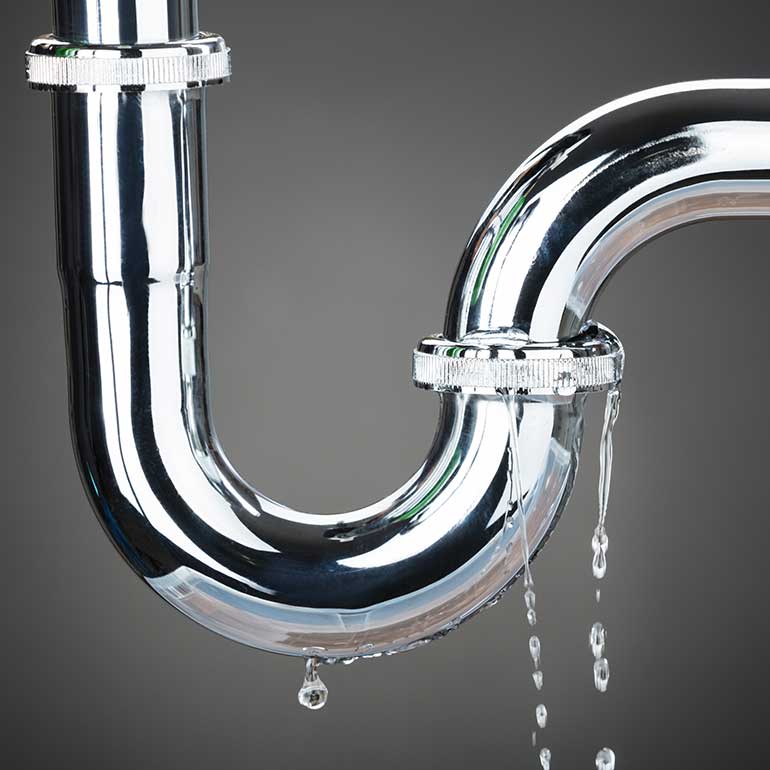
The Simplest Way to Check Your Home for Water Leaks
If you’ve spent any time camping in the outdoors lately away from running water, a warm shower, or a flushing toilet, you’ve probably been reminded of the marvel of indoor plumbing. In many ways, the plumbing system is the lifeblood of your house, bringing you and your family fresh water to keep clean and hydrated and removing unwanted wastewater. Because the plumbing is such an important component of your home, it’s important to regularly check for leaks and make sure the system is working properly and avoid water damage.
The easiest way to check for leaks, other than keeping an ear out for dripping faucets, is by using your water meter. Each meter is designed slightly differently, but on most, you’ll find a small red, blue, or white triangle dial which is known as the “leak indicator.” This indicator is designed to detect even the smallest leaks. Make sure no water is being used in your house and all devices that use water are turned off, including faucets, dishwashers, washing machines, refrigerator ice machines, and HVAC humidifiers. Then check that the meter’s triangle dial is still. If the dial is moving when no water is being used, this indicates some sort of leak inside the house, such as a drip from a faucet, a running toilet, or a loose washer connection.
You can also use your meter to check for leaks by taking a reading. Again, making sure no water is being used in the house, write down the meter reading number and then wait for about an hour before returning to check the meter. A change in the meter’s number indicates use, also pointing toward a leak.
Now starts the process of elimination to find the source of the leak. Toilets are a common culprit and are simple to check. Remove the tank lid and add about 10 drops of food coloring to the tank. Wait about 10 minutes without flushing the toilet and then take a look at the toilet bowl. If colored water has moved into the bowl, the toilet has a leak. Also be sure to check under sinks, outdoor hoses, and your water heater for any puddles or drips.
Even small leaks or cracks could be adding unnecessary cost to your water bill and could cause bigger problems down the road so it’s important to take care of them right away.
If you do end up with water damage, give us a call. We can help you! It’s important to act quickly. Mold can develop in areas not treated rapidly.
Water Extraction Experts specialize in water damage restoration, sewage cleanup, mold removal, fire & smoke damage restoration, flood damage cleanup. We have 3 locations to serve you.
EMERGENCY 24/7 WATER DAMAGE & MOLD REMOVAL
CALL: 970-581-4498 Northern Colorado
CALL: 307-220-5900 Southeastern Wyoming
CALL: 505-250-6500 Albuquerque and Santa Fe, New Mexico Areas
